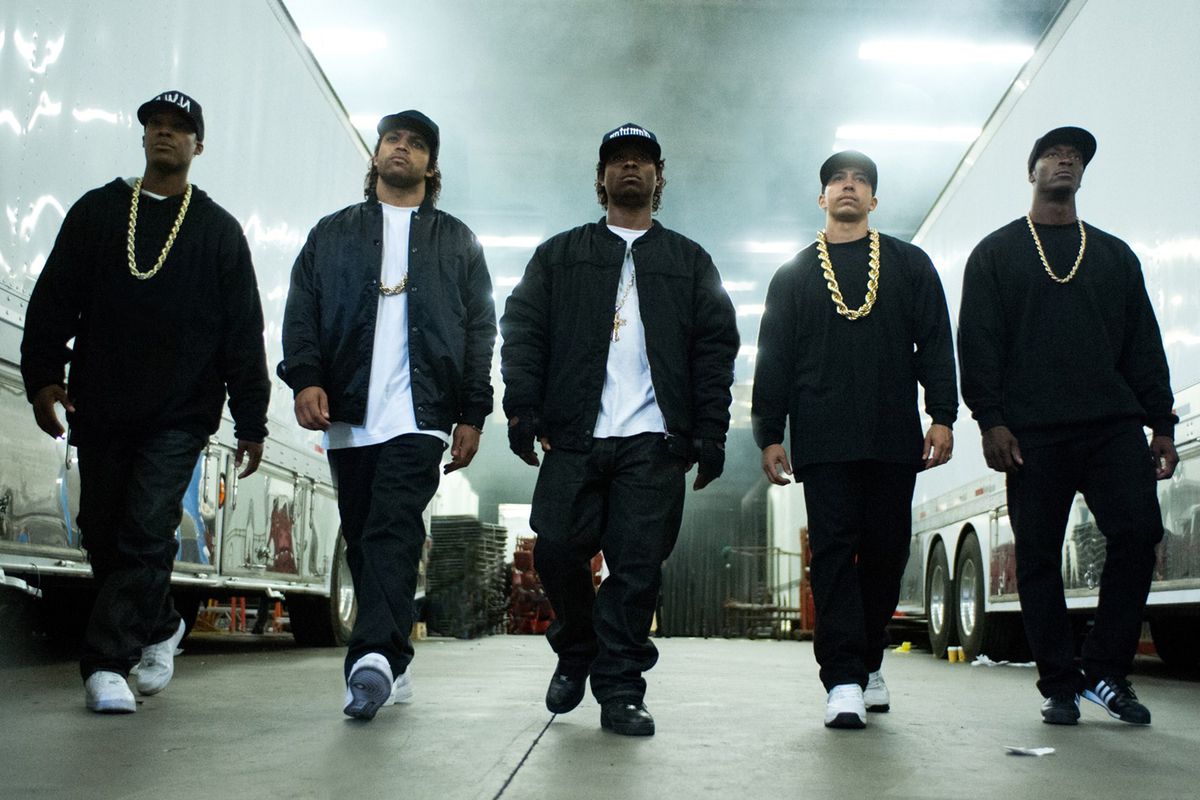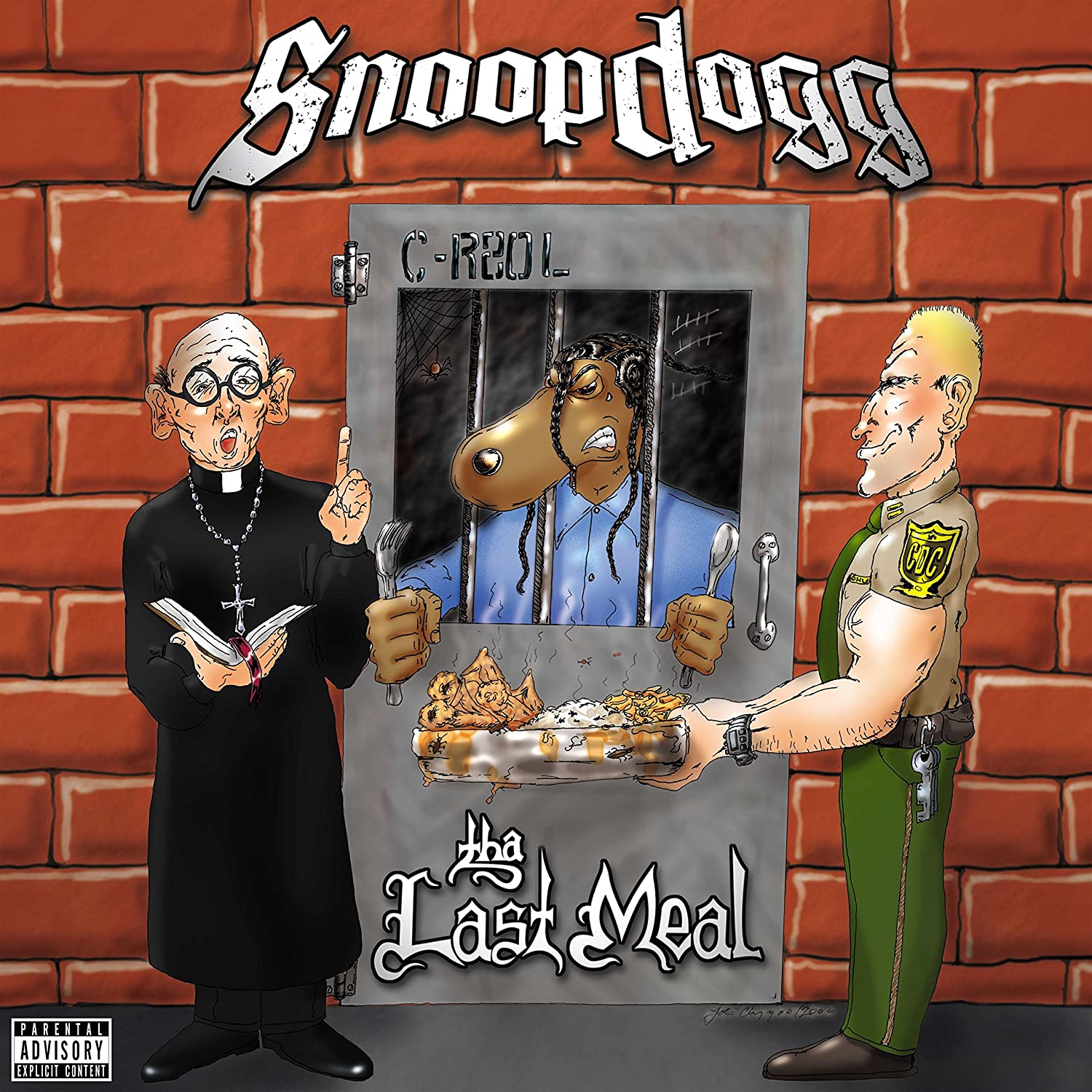2017
Tag: Snoop Dogg
Boss Life ( song ) … Snoop Dogg ( featuring Akon )
2006
Point Seen Money Gone ( song ) … Snoop Dogg ( featuring Jeremih )
2016
Hennesey N Buddah ( song ) … Snoop Dogg ( featuring Kokane )
2000
Side Piece ( song ) … Snoop Dogg
2016
Doggfather ( song ) … Snoop Dogg
1997
40 Ounce Dream ( song ) … Good Charlotte
2016
video review : Straight Outta Compton

I would’ve preferred a documentary, but here it is; the story of NWA in Hollywood movie form. I was never a fan of the group, but two of its members, Dr Dre and Ice Cube, went on to become megastars in their own right. The same might’ve been said for leader Eazy-E if this story didn’t end the way it did. His dying of HIV, hardly a spoiler, is only one of many highlights the bouncy script touches upon. It’s a straight rundown of the group’s career, from low class teenagers in crime-ridden Compton to famous rap stars, with more focus on the behind-the-scenes drama than the music.
Straight Outta Compton, crudely named after the title of their debut album, isn’t anything special on the whole. Its individual parts; director F Gary Gray has a knack for glamorizing life thru movie scenes; are what keep things interesting. The prologue sequence of Eazy-E getting caught in a dope house raid and a funny bit involving a groupie named Felicia are prime examples. The actors tend to overact; you get the sense that the characters know they’re in a movie; but such flaws are basically forgiven to watch the story, which hints at a sequel focused on Dr Dre’s solo career, unfold.
my rating : 4 of 5
2015
Kush ( song ) … Dr Dre + Snoop Dogg ( featuring Akon )
2010
audio review : Stacey Adams ( song ) … Snoop Dogg ( featuring Kokane )
This is Snoop Dogg’s dedication to the OGs. You can even call it a player’s anthem as he pimp-raps, almost freestyling, over a laid-back thumper; perhaps Battlecat’s best production so far. It’s almost certainly Snoop’s best song, thanks in part to its classic chorus.
“We stay on point like Stacey Adams,” Kokane insists, transforming a simple simile into a grand testimony with his laughably whiny singing style; a homage to George Clinton. That glorious hook, playing along with the music, represents the best of new-age funk.
my rating : 5 of 5
2000

audio review : Lil Ghetto Boy ( song ) … Snoop Dogg ( featuring Dr Dre )
This begins with a short clip presumably recorded during the LA riots of 1992. The man; a black man; says he’d give his life if it means that a single African (child) will have a (successful) future. It’s an extreme claim, one he’d probably dismiss as metaphorical if there were a way to take him up on the offer, but I appreciate his compassionate, which sets the mood for the song. He even uses the word Lil to describe the boy.
It’s a politically-driven anthem that’s not just about but also dedicated to African-American boys who basically grow-up on the streets because their mothers, the hoes who spent years fucking random “niggas” and having babies out of wedlock, don’t have the education or means to raise them right. That’s “right” in a moral sense. The neighborhood thugs take on the role of the father, creating a downward spiral effect.
Snoop Dogg narrates from the first-person perspective about being in jail after catching a murder case, which Dr Dre follows as a man released from prison after serving a long sentence only to get back into the same kind of trouble that got him locked away in the first place. The third verse, by Snoop, is unnecessary, but it’s a deeply effective song with catchy chorus vocals and a magnificently out-of-place jazz flute.
my rating : 4 of 5
1992
California Roll ( song ) … Snoop Dogg ( featuring Pharrell + Stevie Wonder )
2015

